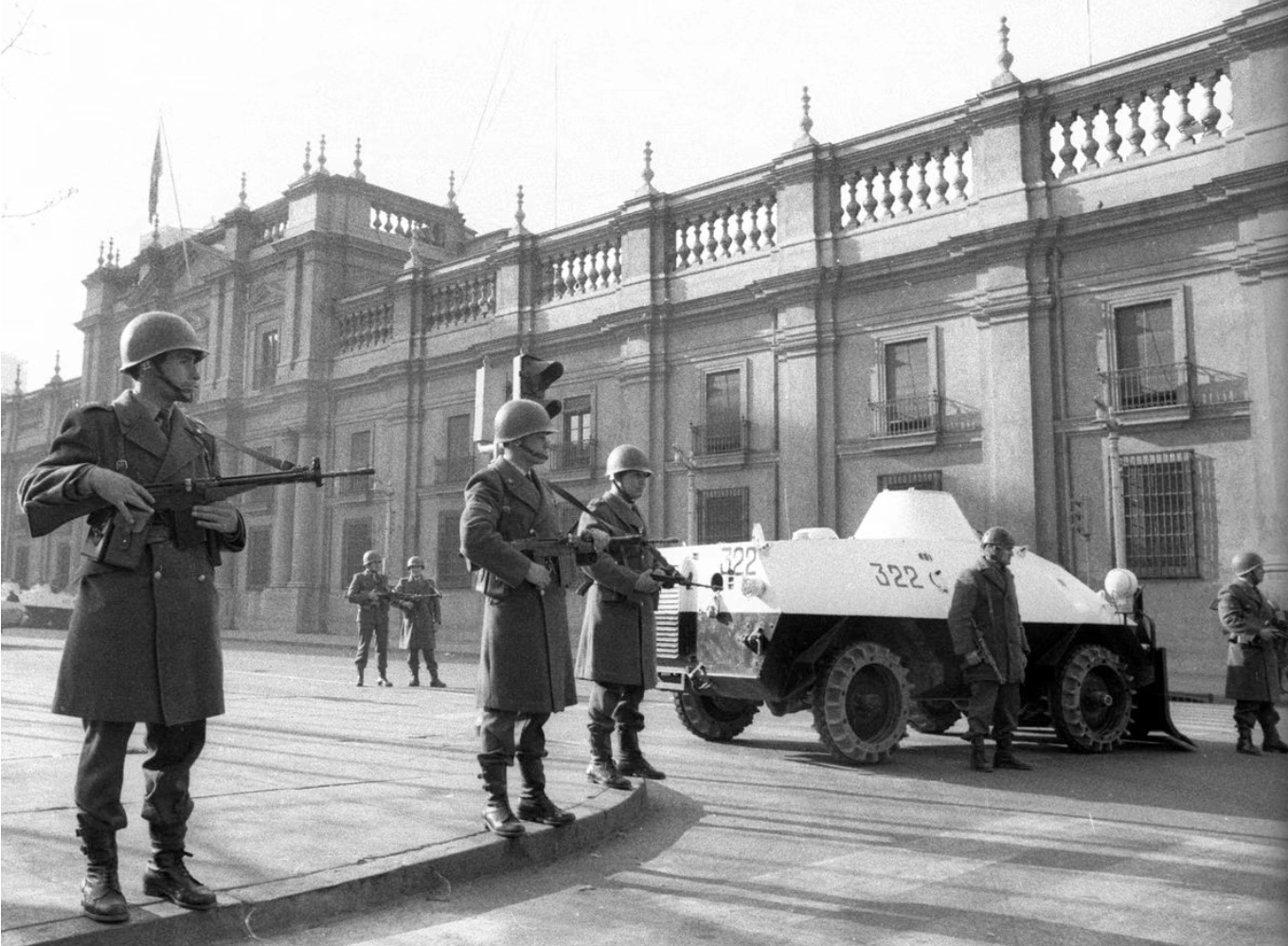The commemoration of the 50th anniversary of the military coup in Chile invites us to reflect on the collapse of the republican, democratic, and presidential order. From a republican and democratic perspective, the decentralization of power, the rule of law, deliberation, and citizen participation are essential. The fall of these pillars prevents the assurance of freedom, respect for human rights, and the rule of law, bringing us closer to violence as a solution to conflicts. Thus, the question arises as to what factors led us to this tragic outcome.
The explanations are diverse. Some positions emphasize that the “exhaustion of the import substitution model” generated inflationary turmoil since the Ibáñez government. Others highlight that the context of the Cold War polarized parties with opposing ideologies, which drove centrifugal movements that promoted the pursuit of “utopias” or “global plans” in the governments of the sixties and seventies.
Other approaches focus on the responsibility of political agents with parties that adopted disruptive strategies both in opposition and in government, and a president incapable of finding a democratic solution to the conflict.
Latin America experienced several similar coups during this period, which raises the emergence of the authoritarian bureaucratic state or explanations that suggest that the breakdowns are the result of the endemic problem of presidentialism. Although there is a consensus that it is a multifactorial problem, the discussion is still open.
Thus, one dimension of the breakdown of Chilean democracy in 1973 can be examined through the constant collision between a presidential figure, initially assigned a reformist character, and a Congress with experience, the result of a long trajectory, and willing to use its prerogatives to contain presidential impulses. The origin of this story can be located in the quest to revitalize presidentialism in 1925.
In the institutional architecture of 1925, efforts were made to contain parliamentary practices and give the president a prominent role in the political system to lead the initiative for structural reforms that aimed to address the problems of the “social issue” and the demands of new social actors. Let’s not forget that this new order was created under military tutelage, which was already present in Chilean and Latin American politics at that time.
However, this institutional design did not contain the sediment of political practice internalized in the previous historical period (1871-1925). This allowed for the consolidation of a Congress that served as an effective counterweight to the onslaughts of a constantly threatening Executive Power.
A central element of the political period between 1925 and 1973 was the urgency of structural reforms to modernize the State and address social demands. In political terms, the renewed executive power faced a diverse and volatile electorate, a result of reforms such as the elimination of census suffrage and the inclusion of women in the voter roll (1949), and the use of the unique ballot, which made stable majorities difficult.
The parties gained prominence, taking root in the territory and exerting influence in Congress, which had the capacity for mobilization and informal influence over the Executive Power. A president without majorities and distant from fragile parties or coalitions lacked the power to implement real reforms.
In this way, although in theory, the president possessed great power, in practice (due to his minority in Congress) his influence was not as solid as thought. The National Congress, during that period, acted as a key veto player, and presidents faced its power in many historical moments from 1932 to 1973. Let’s mention the governments of the Popular Front (1936-1941), where maintaining the coalition wore down the president, who faced pressures from his party, even in the cabinet formation. An outstanding case is the radical government of Pedro Aguirre Cerda (1938-41), in which differences over the cabinet led to considering his resignation.
Additionally, it must be specified that out of the 27 years between González Videla’s presidency in 1946 and Salvador Allende’s government in 1970, the president was in a minority position in Congress for 19 years. This undoubtedly forced the president to build (where possible) a cooperative or negotiating relationship with Congress and the opposition.
Conversely, when the president adopted a more challenging attitude toward an adverse Congress, the result was quite damaging. An example of this is the case of Salvador Allende (1970-73) and his attempt to implement a reformist agenda through mechanisms not agreed upon with Congress using decrees, laws, and interventions in industry. This strategy led to strong opposition through multiple constitutional accusations against ministers and even an attempt against the president himself (1973), without the approval of his legislative agenda.
This institutional disagreement affected various presidents. For example, Carlos Ibáñez (1952-1958) stated in his 1955 message that resisting the parliamentary trend hinders presidential action, which is why he advocated for constitutional reforms. Jorge Alessandri (1958-1964) proposed limiting parliamentary powers in 1964 and increasing executive power. And Eduardo Frei Montalva sought to strengthen the president in 1964 and 1969 in response to institutional conflicts that hindered necessary reforms.
In this learning process, gradual progress was made with the promulgation of Law 17,284, resulting from the discussion in Congress over Frei Montalva’s project (1969). This law gave constitutional status to decrees with the force of law, limited parliamentary initiative in public spending and some legal areas, improved the urgency mechanism in favor of the president, created the Constitutional Court (TC), and allowed the calling of plebiscites.
These institutional adjustments came late, with no time to consolidate. At the moment of the breakdown, politicians forced a worn-out system to its collapse. The collapse of Chilean democracy 50 years ago and its tragic aftermath invite us to revalue institutional designs that balance powers and the importance of having politicians committed to the republican and democratic order.
*Translated by Ricardo Aceves from the original in Spanish.













